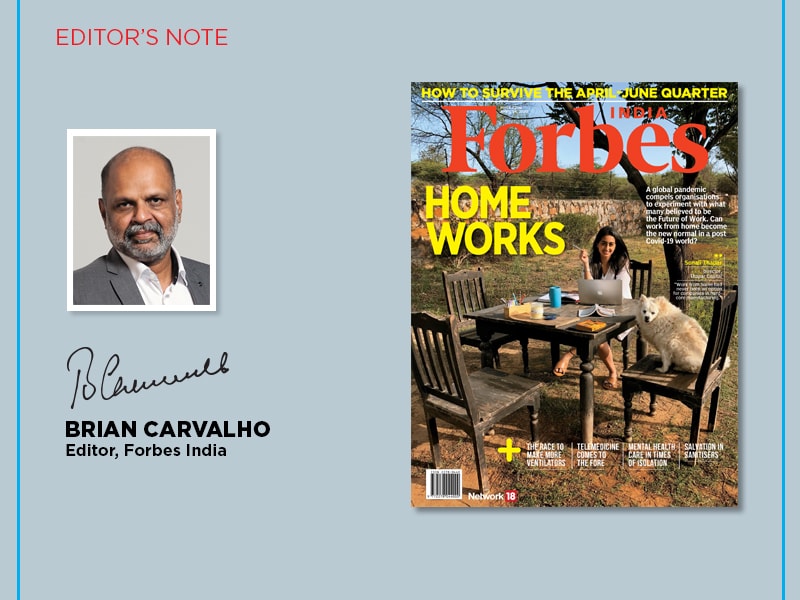Home is the hangout
The pandemic is changing the way we work, and the way we live


After almost three decades of following a particular professional ritual, the work life took an unanticipated turn last fortnight as India chose to lock down when Covid-19 homed in. The routine of leaving home a couple of hours after the cock crowed, and doing an eight-to-nine-hour grind in and out of office made way for a largely unfamiliar approach to work: Wake up when the cock crowed, lend a hand with the house work, and do an eight-to-nine-hour professional grind on your laptop and via remote conferencing.
Suffice it to say, the transition to work from home (WFH) was initially a bit of a struggle. Working out of a couch, blanking out voices of Sydney to the Max and Dog with a Blog, and doing dishes in between an edit and a call are a revolution in one’s way of working.
But, then again, WFH comes easier to many of my Gen Y and Gen Z colleagues, a few of who have been at it before the Covid-19 crisis began—with little let-up in productivity and efficiency. There are technologies that make it easier (from Slack to Zoom), fewer distractions, and they’re saving valuable hours that go in commuting (and polluting less, too). The WFH brigade points to other advantages, too: They don’t need to splurge on expensive real estate, cars, fuel and rides.
For organisations, WFH could also help save costs, namely office space. The billion-dollar question, though, is that while the workforce seems more likely to adjust to the transition, can corporations do likewise? Can traditional hierarchies of management built over decades work as effectively (assuming they do in the first place) when the workforce is operating from home? Do managements trust their workers enough? How do you appraise people when they are working from home? How important is that friendly banter at the water cooler in fostering camaraderie and teamwork?
This fortnight’s cover story is on the new WFH paradigm and how many of India’s workforce have taken to it like, well, CXOs in corner rooms. Pankti Mehta Kadakia and Naandika Tripathi spoke to a host of entrepreneurs and professionals to find out how ready they are to work remotely. Their conclusion: WFH could sustain in a post-Covid-19 world if companies as well as their talent pools can seize the benefits. Write Mehta Kadakia and Tripathi: “WFH could open up jobs, and hiring talent, for parents with young children, persons with disabilities, and those who cannot shift locations for familial or financial reasons.”
The other big feature in our package of stories on the impact of the pandemic is on how startups are gearing up for the fight of their lives: To survive the April to June quarter as the funding tap dries up and cash flows slow to a trickle. As Rajiv Singh, who spoke to a clutch of entrepreneurs and venture capitalists, puts it, if you survive this period, your chances of succeeding over the long term are indeed bright.
To use that favourite jargon of VCs, Covid-19 may well result in an ‘inflection’ point on several fronts—from WFH to sectors like online learning and telemedicine. The opportunity for remote health care services is just one of the features in our pandemic package. The others include dealing with the mental toll of social isolation, the rush to make hand sanitisers (are all following WHO-stipulated norms in manufacturing?) and how manufacturers from medical device makers to auto makers are stepping up to produce ventilators.
Best,
Brian Carvalho
Editor, Forbes India
Email:Brian.Carvalho@nw18.com
Twitter id:@Brianc_Ed
First Published: Apr 08, 2020, 09:40
Subscribe Now